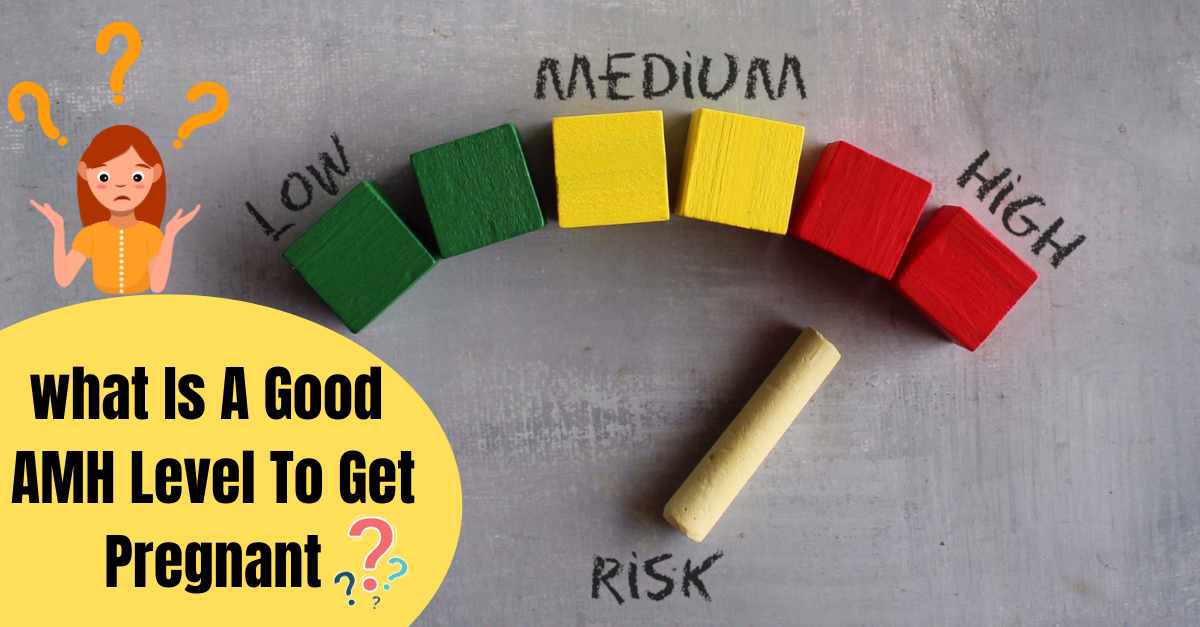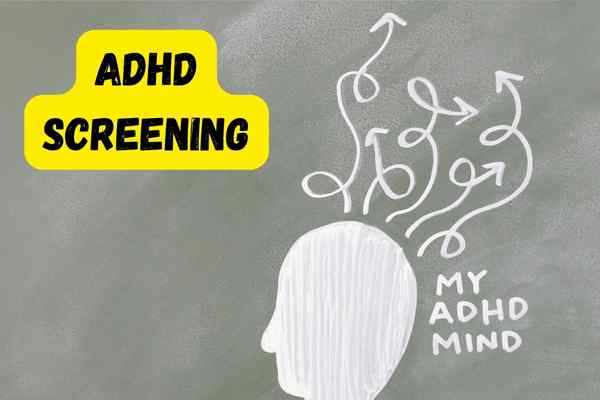Ding Liren Mental Health Issue: The Silent Struggle of a Chess Champion

Ding Liren Mental Health Issue : In the world of chess, players are often seen as intellectual giants, celebrated for their strategic thinking, calm demeanor, and impressive achievements. However, behind the chessboard, many players face mental health struggles that are rarely talked about. One such player is Ding Liren, a Chinese chess grandmaster, who has openly discussed his battles with mental health. His story serves as a reminder that even the brightest minds can face personal challenges, and that mental well-being is just as important as skill and strategy in the world of competitive chess.
The Pressure of Being a Chess Champion
Ding Liren is widely regarded as one of the top chess players in the world. He has achieved great success, winning numerous prestigious tournaments and maintaining a high ranking for years. But behind his accomplishments, Ding has faced immense pressure. Chess is a mentally demanding game that requires extreme focus, patience, and hours of concentration. For top players like Ding, the pressure to perform at their best every time they step onto the chessboard is overwhelming.
The world of competitive chess can be incredibly isolating, with players often spending long hours alone, analyzing positions and preparing for their next move. This intense focus can take a toll on one’s mental health, leading to anxiety, stress, and even feelings of burnout. For Ding Liren, this pressure became a significant part of his journey, one that he has not shied away from discussing.
Ding Liren Mental Health Issue: Struggling Behind the Scenes
Ding Liren has spoken openly about his struggles with mental health, particularly during the most challenging periods of his career. Like many top athletes, Ding has faced moments of anxiety, stress, and even self-doubt. In interviews, he shared how the constant pressure to win and stay at the top of the game sometimes led to feelings of isolation and exhaustion. Despite being one of the best players in the world, Ding admitted that he occasionally felt overwhelmed by the expectations placed on him.
This Ding Liren mental health issue isn't unique. Many athletes, especially those competing at the highest levels, deal with similar feelings of pressure and stress. But what sets Ding apart is his willingness to speak openly about it, encouraging others to recognize the importance of mental well-being, especially in the world of professional sports.
The Hidden Impact of Mental Health on Chess
Chess may seem like a purely intellectual game, but the mental and emotional state of a player has a huge impact on their performance. Mental fatigue, stress, and anxiety can affect a player’s concentration, making it harder to focus and perform well under pressure. Even the slightest slip in mental focus can lead to mistakes that cost a player the game.
For Ding Liren, these mental health struggles have sometimes been difficult to navigate. The pressure to maintain his position as one of the world’s top players while dealing with his own Ding Liren mental health issue has been a constant battle. But despite these challenges, Ding has shown resilience and a deep understanding of the importance of caring for his mind, not just his chess skills.
Ding Liren Mental Health Issue: Breaking the Silence
One of the most important aspects of Ding Liren’s story is his openness about his mental health struggles. In a world where vulnerability is often seen as a weakness, Ding has chosen to share his experiences in an effort to reduce the stigma surrounding mental health, especially in the world of professional sports. His honesty has been a powerful reminder that mental health issues are not a sign of weakness, but rather a part of being human.
By speaking up, Ding Liren has encouraged other chess players to take their mental health seriously and seek help when needed. This shift in mindset is essential, as mental well-being is often overlooked in high-performance environments. Just like physical injuries, mental health challenges need to be addressed and treated with care and respect. Ding’s journey has helped open the door for more discussions around mental health in chess and beyond.
How Ding Liren Copes with His Mental Health Issue
Despite the difficulties he has faced, Ding Liren has developed strategies to manage his mental health. One key approach has been recognizing when he needs a break. Competing at the highest level for extended periods can be exhausting, so Ding makes sure to take time off when necessary to recharge and focus on his well-being.
In addition to taking breaks, Ding also emphasizes the importance of having a support system. Whether it’s family, friends, or a professional support network, having people to lean on has been crucial in helping him cope with stress and anxiety. Ding has also found solace in activities outside of chess, such as spending time with loved ones and engaging in hobbies that help him unwind.
Ding’s willingness to take care of his mental health has set a positive example for others in the chess community. It shows that self-care is not only important for overall well-being but also for long-term success in the game.
The Chess World’s Growing Focus on Mental Health
Ding Liren’s mental health journey has sparked important conversations within the chess community. As more and more players open up about their own Ding Liren mental health issue, the sport is beginning to recognize the need for better support systems for players. This includes providing mental health resources, offering counseling services, and creating an environment where players feel comfortable discussing their challenges without fear of judgment.
In many ways, Ding Liren’s courage to speak about his mental health is helping to change the narrative around mental health in chess. It’s a shift toward recognizing that chess is not just about mental agility and strategy, but also about emotional resilience and self-care.
Conclusion
Ding Liren’s story is not just one of triumph on the chessboard but also one of strength in the face of personal struggles. His openness about his Ding Liren mental health issue has helped bring attention to the challenges that many professional chess players face, reminding us all that mental well-being is just as important as physical health.
Through his journey, Ding has shown that it’s okay to struggle, it’s okay to ask for help, and it’s okay to prioritize your mental health. His story serves as an inspiration to others, both in the world of chess and beyond, that success isn’t just about winning—it’s about being kind to yourself, taking care of your mind, and finding the strength to keep going, even when things get tough.
As we continue to watch Ding Liren’s career unfold, we can appreciate not only his extraordinary talent but also his resilience, courage, and dedication to improving both his game and his mental well-being.
Related Blogs
-
PSA Test (पीएसए टेस्ट) - What Is It, Cost, Symptoms, And How Does It Work?
 - What Is It, Cost, Symptoms, And How Does It Work.jpg)
-
How to Lower Thyroid Antibodies Naturally and Manage Thyroid Peroxidase Antibodies?

-
RDW (Red Cell Distribution Width) Test: Understanding It's Significance And Interpretation

-
Marvel Path Lab - Your Trusted Partner in Comprehensive Blood Testing

-
थायराइड क्या है? थायराइड के कारण, लक्षण और प्रभावी घरेलू उपचार (Home Remedies For Thyroid in Hindi)
.jpg)
-
Discover the Ultimate Liver Detox: Top 15 Foods to Naturally Cleanse Your Liver

-
The Ultimate Guide to Understanding MCV in Blood Tests

-
AMH Levels Unveiled: What is a Good AMH Level to Get Pregnant

-
Weil Felix Test - Marvel Path Lab

-
Exploring Fructosamine Testing: Marvel Path lab

-
Exploring Malaria Causes, Symptoms, And Cutting-Edge Diagnosis Techniques

-
Unlocking the Secrets of Fertility: Understanding Semen Analysis

-
Hot Weather, Cool Tips: Mastering Summer Wellness Like a Pro!

-
Homocysteine Test in Hindi:होमोसिस्टीन टेस्ट क्या है, खर्च, नॉर्मल रेंज, कैसे क्यों और कब होता है!

-
Optimizing Your Health Through Food Intolerance Testing: A Step-by-Step Guide

-
Your Allergy Questions Answered: Causes, Symptoms, and Diagnosis

-
Boost Your Heart Health: Simple Ways to Manage Homocysteine Levels Through Diet

-
Does MCV (Mean Corpuscular Volume) Fluctuate

-
Understanding Normal Values in a Peripheral Smear Test

-
Understanding the Prolactin Blood Test: Purpose, Procedure, and Interpretation

-
CA सीए 125 टेस्ट - क्यों किया जाता है, इसकी आवश्यकता क्या है, और जानें इसके बारे में

-
Understanding the Anti-Müllerian Hormone (AMH) Test: A Simple Guide
 Test.jpg)
-
The MPV Blood Test Explained: What It Reveals About Your Health

-
Understanding Pancreas Blood Tests

-
Understanding the CO2 Blood Test: A Simple Guide to Your Health

-
Albumin Blood Test

-
Everything You Need to Know About the Globulin Blood Test

-
Allergy Blood Test

-
Understanding Cardiac Blood Tests: A Guide to Heart Health

-
Decoding Your Chloride Blood Test: What You Need to Know

-
Calcium Blood Tests: A Vital Tool for Assessing Bone and Heart Health

-
The Silent Indicator: Understanding the Fecal Occult Blood Test (FOBT)

-
All About the C3 Complement Blood Test: Normal, High, and Low Ranges Explained

-
Simplifying the Anion Gap Blood Test: What You Need to Know

-
CA-125 Blood Test

-
Understanding Lung Cancer: Symptoms, Causes, and Prevention

-
Exploring the Long-Term Health Effects of Tobacco Use

-
Beating the Heat: Essential Tips for Staying Cool and Safe

-
Summer Health Tips: Stay Cool, Stay Healthy!

-
मंटौक्स परीक्षण (Mantoux test) के लिए व्यापक गाइड: प्रक्रिया, व्याख्या और महत्व

-
The Comprehensive Guide to ALT Blood Test

-
AST Blood Test: Your Guide to Liver Health Assessment

-
SGPT Blood Test

-
Serum Bilirubin Test in Hindi -सीरम बिलीरुबिन टेस्ट की पूरी जानकारी

-
Everything You Need to Know About the MCH Blood Test

-
Best Home Remedies to Naturally Detox Liver

-
Unveiling the Side Effects of Excessive Vitamin B12 Intake

-
Best Foods for Kidney Detox Naturally Boost Your Renal Health

-
LKM Antibody Test: A Comprehensive Guide

-
लीवर फंक्शन टेस्ट: समझें, क्या होता है और कैसे काम करता है

-
Amylase Blood Tests

-
Vanillylmandelic Acid-VMA Urine Tests

-
Everything You Need to Know About the CRP Test

-
Simple Strategies for a Healthy Liver: Your Ultimate Guide

-
Ferritin Test in Hindi (सीरम फेरिटिन टेस्ट)
.jpg)
-
Karyotyping Test Explained in Hindi: कैरियोटाइपिंग टेस्ट

-
All About PRL Blood Test and Its Impact on Prolactin Levels

-
Acid-Fast Bacillus (AFB) Tests Demystified
 Tests Demystified.jpg)
-
Acetaminophen Level Tests

-
Empowering Awareness: Your Guide to ADHD Screening

-
Adrenocorticotropic Hormone (ACTH) Test
 Test.jpg)
-
Are You Drinking Too Much The Essential Guide to Alcohol Use Screening Tests

-
Breaking: New Study Reveals Surprising Link Between Aldosterone Levels and Heart Health

-
High or Low What Your Alkaline Phosphatase Levels Mean for You

-
Attention: Must-Know Facts About Allergy Blood Testing

-
Allergy Skin Tests

-
The Role of the ANA Test in Diagnosing and Treating Autoimmune Conditions

-
The Acid Phosphatase Test: What You Need to Know About Sample Types and Report Timing

-
Albumin Fluid Test: Significance, Sample Types, and Report Timeline

-
Ammonia Blood Test: Sample Type, Report Generation Time, and Diagnostic Importance

-
Angiotensin Converting Enzyme (ACE): Its Role, Sample Types, and Report Generation Time
 Its Role, Sample Types, and Report Generation Time.jpg)
-
Bile Acid Total Blood Test: Sample Type and Report Generation Time Explained

-
Blood Urea Nitrogen (BUN) Levels Explained: Fast, Accurate Testing with Blood Samples at Marvel Path Lab
 Levels Explained Fast, Accurate Testing with Blood Samples at Marvel Path Lab.jpg)
-
Amniocentesis Fluid Test : the Procedure, Sample Type, and Report Results

-
The Hidden Dangers of Bird Flu: What You Need to Know About Avian Influenza

-
Zika Virus : ज़ीका वायरस के कारण , लक्षण और बचने के उपाय

-
तेजी से फ़ैल रहा है West Nile Virus जाने यह बीमारी क्या है और इससे कैसे करे अपना बचाव
 48 मामलो की हुई पुष्टि.jpg)
-
25 की उम्र पर करते ही हर पुरुष को ये 10 टेस्ट जरूर करवाने चाहिए

-
25 की उम्र पार करते ही महिलाओं को ये 7 टेस्ट करवाना क्यों है जरूरी

-
हर शादीशुदा महिला के लिए जरूरी 10 टेस्ट: सेहतमंद रहने के लिए आज ही करवाएं!

-
इन 10 खाद्य पदार्थों को डाइट से गायब न करें वरना थायरॉयड की समस्या बढ़ सकती है!

-
अगर आपको भी डेंगू है, तो हो जाएं सावधान – आज ही करें ये घरेलू उपचार

-
अगर आपको भी दिख रहे हैं ये लक्षण तो हो जाएं सावधान, आपका लिवर सड़ चुका है तुरंत करवाए लिवर टेस्ट

-
प्लेटलेट्स बढ़ाने के लिए 6 अचूक उपाय – आज ही शुरू करें!
.jpg)
-
हर महिला को यह 5 ब्लड टेस्ट जरूर करवाने चाहिए – जानिए क्यों!

-
विटामिन की कमी का पता लगाने और सुधारने के लिए ब्लड टेस्ट का सही तरीका

-
7 Warning Signs of Dengue Fever in Hindi : जानें कैसे पहचानें और खुद को बचाएं!

-
डेंगू में प्लेटलेट्स कैसे बढ़ाएं: घर बैठे अपनाएं ये 10 चमत्कारी घरेलू उपाय, रिजल्ट चौंका देंगे!

-
Rashes In Dengue Is Good Or Bad डेंगू में रैशेज: क्या ये आपकी सेहत के लिए अच्छे हैं या खतरनाक संकेत जानिए सच्चाई!

-
Dengue Antibody Igm Positive Means :क्या होता है जब डेंगू एंटीबॉडी IgM पॉजिटिव आए यहाँ जानें!

-
अगर आपको ये 7 लक्षण दिखें, तो हो सकता है टाइफाइड! तुरंत जानें टाइफाइड के लक्षण और बचाव के उपाय

-
Dengue Symptoms In Babies : बच्चों में 7 चौंकाने वाले लक्षण जो हर माता-पिता को जानने चाहिए!

-
How Many Days To Recover From Dengue : जल्दी ठीक होने के लिए अपनाएं ये 6 टिप्स!

-
Monkeypox Symptoms मंकीपॉक्स के 7 खतरनाक लक्षण: जानें कैसे बचें और सुरक्षित रहें!

-
Viral Fever Treatment At Home : वायरल बुखार से छुटकारा पाने के 8सरल घरेलू उपाय जानें कैसे करें इलाज

-
What To Eat During Fever : बुखार में क्या खाना चाहिए जानिए 7 सुपरफूड्स जो तेजी से ठीक करेंगे!

-
इन 15 खाद्य पदार्थों को न छोड़ें वरना आपका लिवर कभी भी साफ नहीं रहेगा

-
Rashes After Fever In Adults: क्या बुखार के बाद रैशेस सामान्य हैं जानें लक्षण, कारण और उपाय!

-
Scarlet Fever Symptoms : आपके बच्चे को हो सकता है स्कार्लेट फीवर! लक्षण और इलाज की पूरी जानकारी

-
थायरॉयड के इन लक्षणों को न करें नजर अंदाज: तुरंत कराएं जांच जानें थायरॉयड बीमारियों का सरल इलाज

-
What Health Problems Are Associated With Low Blood Pressure : जानें कैसे पहचानें और बचें गंभीर समस्याओं से

-
4 Stages Of Typhoid Fever : जानें पहचानें और तुरंत इलाज करें!

-
Test For Dengue Fever : जानें पूरी जानकारी और सही समय पर टेस्ट करवाएं

-
Viral Fever Duration In Child : क्या आपका बच्चा वायरल बुखार से जूझ रहा है जानें इसके लक्षण और उपचार!

-
बस ये 5 चीजें खाएं और 1 हफ्ते में विटामिन B12 की कमी करें दूर, जानें आसान तरीके!

-
यूरिक एसिड को कंट्रोल करने का जादुई तरीका – सिर्फ ये चीज़ खाएं और पाएं राहत!

-
बस रात को खाएं ये एक चीज़ और देखें कैसे बढ़ता है विटामिन D!

-
क्या आप जानते हैं दुनिया में कितने प्रकार के ब्लड ग्रुप होते हैं यहां जानिए सब कुछ!

-
Which Path Lab Is Best In India: कैसे मार्वल पैथ लैब ने बदल दी पैथोलॉजी की दुनिया जाने कैसे !

-
Can you take vitamin B12 every day : क्या आप हर दिन विटामिन बी12 ले सकते हैं जानें इसके अद्भुत फायदे और सही खुराक!

-
क्यों होते हैं बुजुर्गों को कैंसर जानें 7 चौंकाने वाले कारण!

-
नवरात्रि में ये 10 सुपरफूड्स खाएं, माता रानी होंगी प्रसन्न और आप रहेंगे फिट!

-
Blood Test For Allergy : बार-बार छींक, खुजली, या सांस की दिक्कत, ये ब्लड टेस्ट आपके सभी सवालों का जवाब देगा!

-
PTH Blood Test: अगर दिख रहे हैं ये संकेत, तुरंत करवाएं ये जरूरी टेस्ट और जानें इसका पूरा प्रोसेस!

-
यूरिक एसिड को मिनटों में कम करें जानें 10 घरेलू नुस्खे जो तुरंत असर दिखाएंगे!

-
पूरे 9 दिन भूख से रहना चाहते हैं दूर, नवरात्रि में बस यह एक चीज खाएं!

-
Ratan Tata News : रतन टाटा जी का स्वास्थ्य रहस्य कैसे उन्होंने बनाए रखा अपनी सेहत

-
Crimean Congo Hemorrhagic Fever : लक्षण, कारण और और सही समय पर टेस्ट कराने की जरूरत अवश्य पढ़ें!

-
What Is Eosinophils In Blood Test ? आसान भाषा में जानिए!

-
सर्दी-खांसी से राहत या त्वचा की चमक? जानिए कच्ची हल्दी वाला दूध के 9 जबरदस्त फायदे!

-
Breast Cancer Recurrence Blood Test: The Life-Saving Check Every Survivor Needs to Know About!

-
Dementia Blood Test: How It Helps in Early Diagnosis and What You Should Know

-
UIBC Blood Test: Everything You Need to Know About Iron Levels in Your Body

-
HBAC ब्लड टेस्ट: यह टेस्ट क्यों ज़रूरी है और क्या बताता है?

-
क्या विटामिन B12 खतरनाक है? पूरी सच्चाई जानें!

-
Dual Marker Blood Test : जानिए यह टेस्ट क्यों जरूरी है और इसकी पूरी जानकारी

-
लिम्फोसाइट्स (Lymphocytes ) क्या होते हैं? पूरी जानकारी आसान भाषा में!
 क्या होते हैं पूरी जानकारी आसान भाषा में!.jpg)
-
गर्मियों में खुद को हाइड्रेटेड और हेल्दी कैसे रखें? | Marvel Path Lab की एक्सपर्ट गाइड

-
फैटी लिवर पेशेंट के लिए वरदान है ये चीज – Diet Tips to Improve Liver Health






